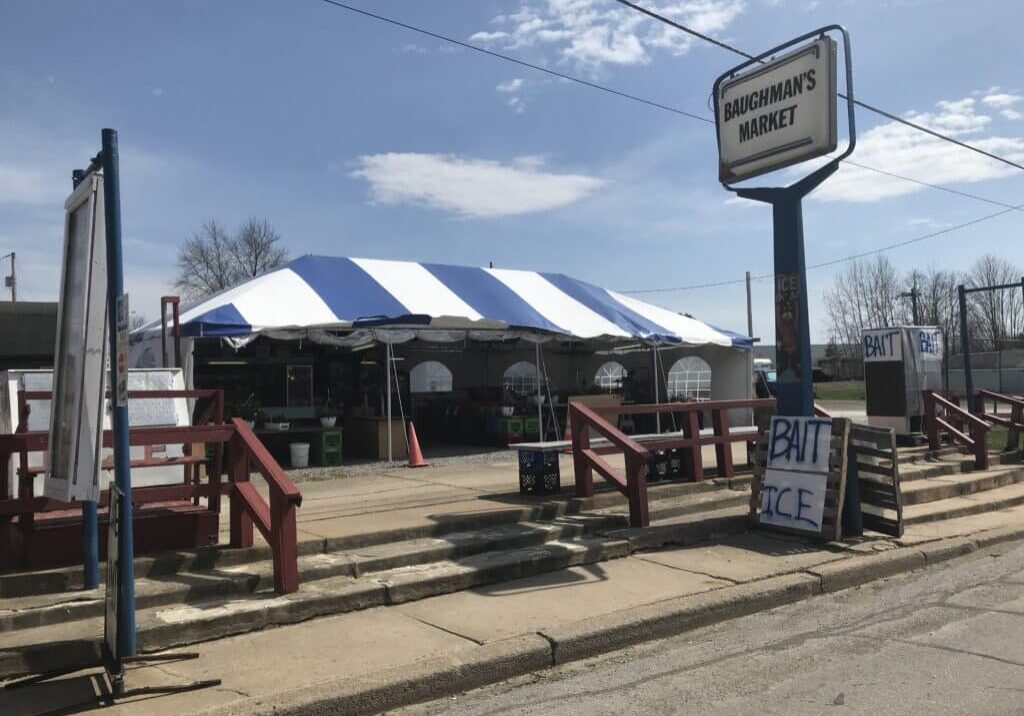
It sure seems like many grocery stores in small towns are leaving.
When that happens, it creates strife for local townspeople. They need to travel further to buy their groceries. Or they have to order online from big companies they don’t trust. Retailers have lost another store in their midst. Folks would stop by their shops first, then go grocery shopping. Now they’re shopping out of town, for everything. The large convenience stores on the edge of town by the highway are getting the eggs and milk business. Their money doesn’t stay local though. Same thing for the dollar stores.
You could try to recruit a big chain grocery store.
However, that is no walk in the park either. Rita Williams from Kroger Company grocery chain told Lacy Beasley of Retail Strategies that you have to work through a broker to open a national brand store in your town. And that can take 3 to 5 years from start to store. If you even qualify.
Old way or new way?
It’s starting to sound a little desperate, isn’t it?
And if you want to keep trying things the old way, it can remain desperate. But there is a new way to solve this challenge!
Collaboration Works
In our Rural Collaboration webinar Brad Lingafelter asked, “Has anybody created a collaboration that allows a community to get all of its own essentials, meat, produce, dairy, eggs, soaps, et cetera, that can all be raised locally and create a homestead feel without being homesteaders.”
He was thinking in the New Way! The answer is yes, rural communities are finding ways to replace their lost grocery stores.
The new farmers’ markets
I was in a small town in Colorado for an onsite engagement and their grocery store had just closed. Everybody was all freaked out about that. So about ten of us got together and had a conversation. They realized that they had people who had eggs for sale. And some women were growing flowers in their yard. And the city now owned the empty building where the grocery store was.
So what if they opened the old grocery store and made it into a local farmer’s market? And they liked that idea because that was something they could understand. They could see themselves coming together in that kind of environment. Because there are entrepreneurs everywhere, even in the smallest of towns. And by being indoors you make it possible to use it year round. That is a good way to allow them to try out their product and create a pop-up session at a local farmer’s market. It’s a small step. It’s something the city was behind, and the locals wanted to try.
Who can you collaborate with?
Claudia Bellony from the International Economic Development Council shared, “Yes! We worked with the local library system to develop a farmer’s market!” That’s a good collaboration. Your libraries are often connected to most of the people in the community.
Sonya said “We want to do something similar, Brad! With artists, crafters, and culinary entrepreneurs.” Great ideas too. Farmers’ Markets don’t have to be only food. In fact, by bringing all kinds of vendors to the table you are cross-pollinating.
Caldwell KS has a new farmer-to-consumer food hub called Border Queen Harvest Hub. They are a coordinated production organization established to connect farmers and ranchers with consumers. They are a new 24/7 marketplace for a variety of fresh products including eggs, meat, honey, and secondary products like salsa and pancake mix. What makes them different from large online businesses is that local people are making this possible. They are creating outreach in the local areas via town hall meetings, using social media, and using the products too.
The Center for Rural Affairs tells the story of Danelle and One Farm Market in Logan, Iowa. She wanted to set up a temporary farmers market in an empty building. She rented a vacant storefront in town. Danelle wanted to sell items from her farm and help to renovate an empty building in her town. She used advertising and marketing on social media and her opening was a success. The community response was so overwhelming she decided to continue with a more permanent and expanded local foods store, and One Farm Market was born.
The new way of talking about the closing of your grocery store is to focus on the possibilities.
It’s easy to get swayed by the negativity when your grocery store leaves. However, whining and moaning won’t bring a local market to your town. Using the Idea Friendly Method will help you get started on finding a solution.
Gather Your Crowd –Who is interested in bringing food back to your town?
Build Connections – Who else do you need to talk to? What other items can you bring into this scene? Who are the farmers, ranchers, and entrepreneurs already in the area?
Take Small Steps – What small steps can you take? How can you try your idea in a small way?
That’s the Idea Friendly way.
June 24-25, 2024 I will be in Montgomery, Alabama at the National Rural Grocery Summit giving a talk on Growing Your Food Business Ecosystem with a focus on food and tourism. If you’ll be there, please find me!
